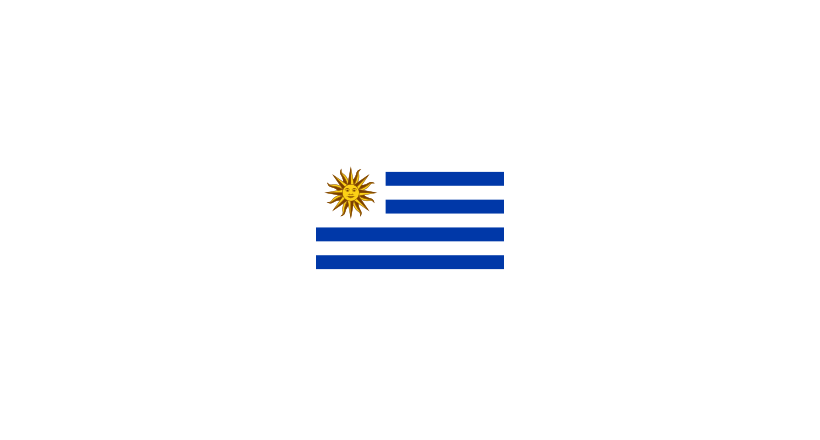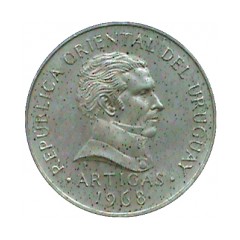Uruguay , officially the Oriental Republic of Uruguay (Spanish: República Oriental del Uruguay; Portuguese: República Oriental do Uruguai), is a country in the southeastern region of South America. It borders Argentina to its west and Brazil to its north and east, with the Río de la Plata (River of Silver) to the south and the Atlantic Ocean to the southeast. Uruguay is home to an estimated 3.45 million people, of whom 1.8 million live in the metropolitan area of its capital and largest city, Montevideo. With an area of approximately 176,000 square kilometers (68,000 sq mi), Uruguay is geographically the second-smallest nation in South America, after Suriname.
Uruguay was inhabited by the Charrúa people for approximately 4,000 yearsbefore the Portuguese established Colonia del Sacramento in 1680; Uruguay was colonized by Europeans relatively late compared with neighboring countries. Montevideo was founded as a military stronghold by the Spanish in the early 18th century, signifying the competing claims over the region. Uruguay won its independence between 1811 and 1828, following a four-way struggle between Portugal and Spain, and later Argentina and Brazil. It remained subject to foreign influence and intervention throughout the 19th century, with the military playing a recurring role in domestic politics.
A series of economic crises put an end to a democratic period that had begun in the early 20th century, culminating in a 1973 coup, which established a civic-military dictatorship. The military government persecuted leftists, socialists, and political opponents, resulting in several deaths and numerous instances of torture by the military; the military relinquished power to a civilian government in 1985. Uruguay is today a democratic constitutional republic, with a president who serves as both head of state and head of government.
Uruguay is ranked first in Latin America in democracy, peace, low perception of corruption, e-government, and is first in South America when it comes to press freedom, size of the middle class and prosperity. On a per-capita basis, Uruguay contributes more troops to United Nations peacekeeping missions than any other country. It tops the rank of absence of terrorism, a unique position within South America. It ranks second in the region on economic freedom, income equality, per-capita income and inflows of FDI Uruguay is the third-best country on the continent in terms of HDI, GDP growth, innovation and infrastructure. It is regarded as a high-income country by the UN. Uruguay was also ranked the third-best in the world in e-Participation in 2014. Uruguay is an important global exporter of combed wool, rice, soybeans, frozen beef, malt and milk.Nearly 95% of Uruguay's electricity comes from renewable energy, mostly hydroelectric facilities and wind parks. Uruguay is a founding member of the United Nations, OAS, Mercosur, UNASUR and NAM.
Uruguay is regarded as one of the most socially advanced countries in Latin America. It ranks high on global measures of personal rights, tolerance, and inclusion issues.The Economist named Uruguay "country of the year" in 2013, acknowledging the policy of legalizing the production, sale and consumption of cannabis. Same sex marriage and abortion are also legal.





